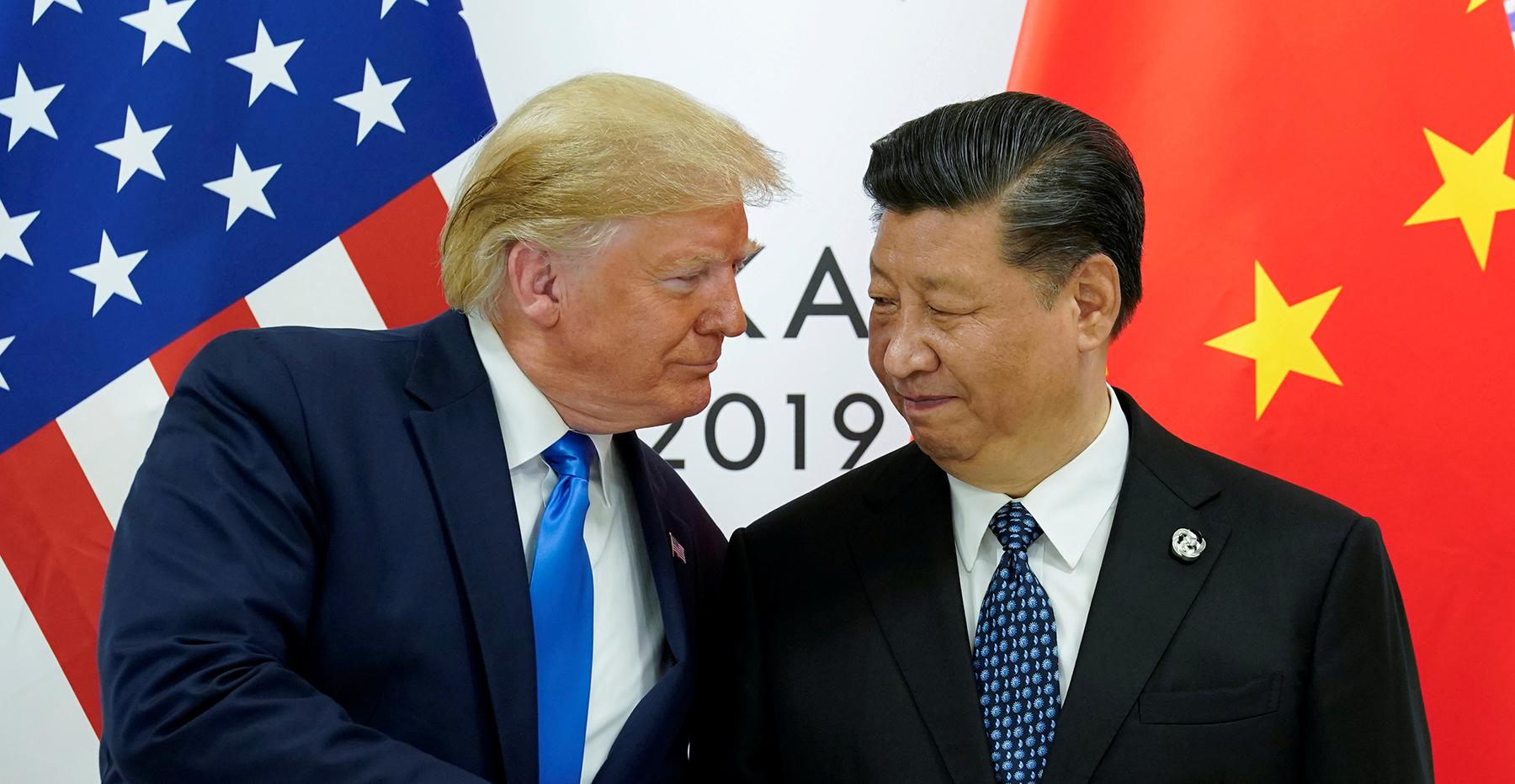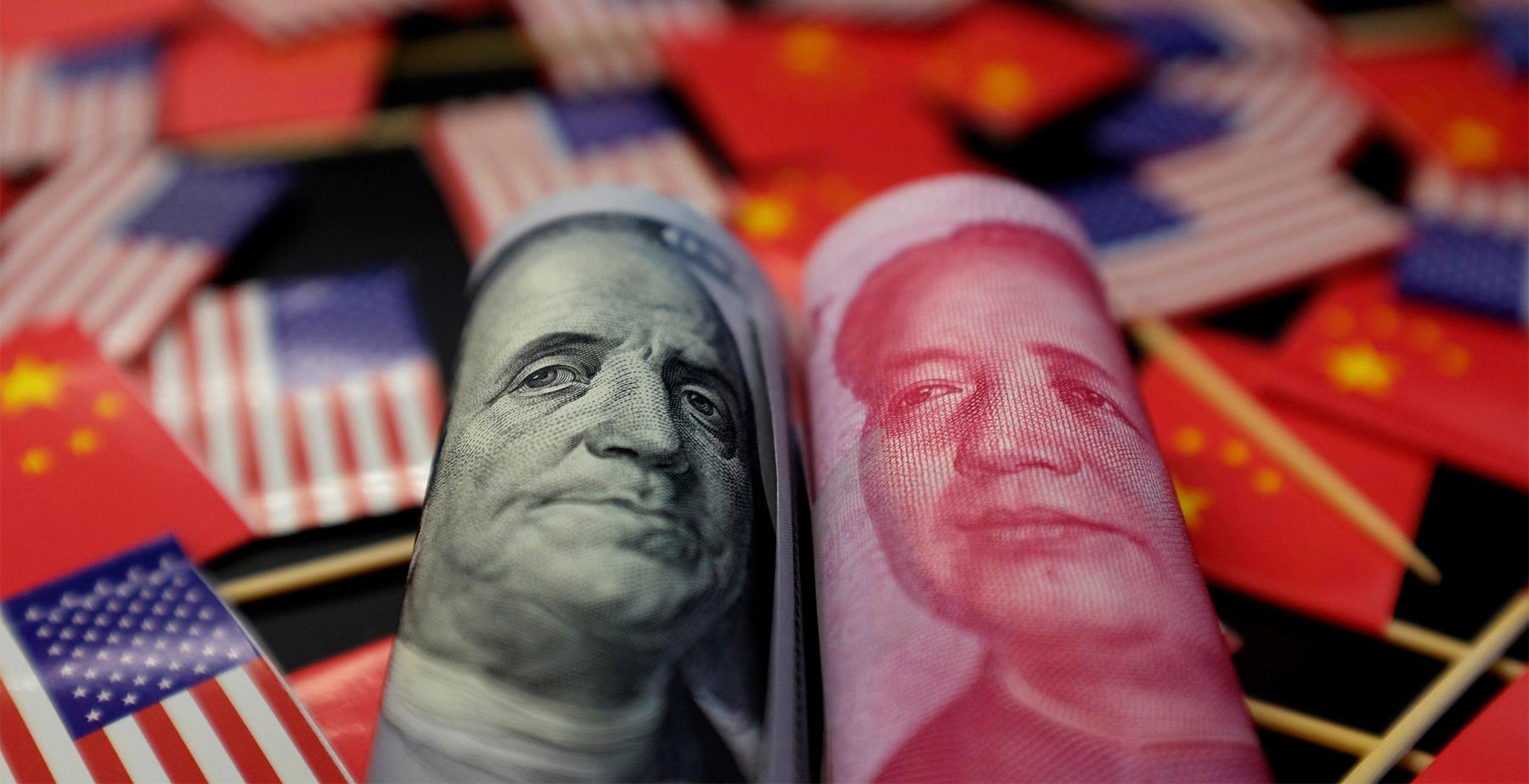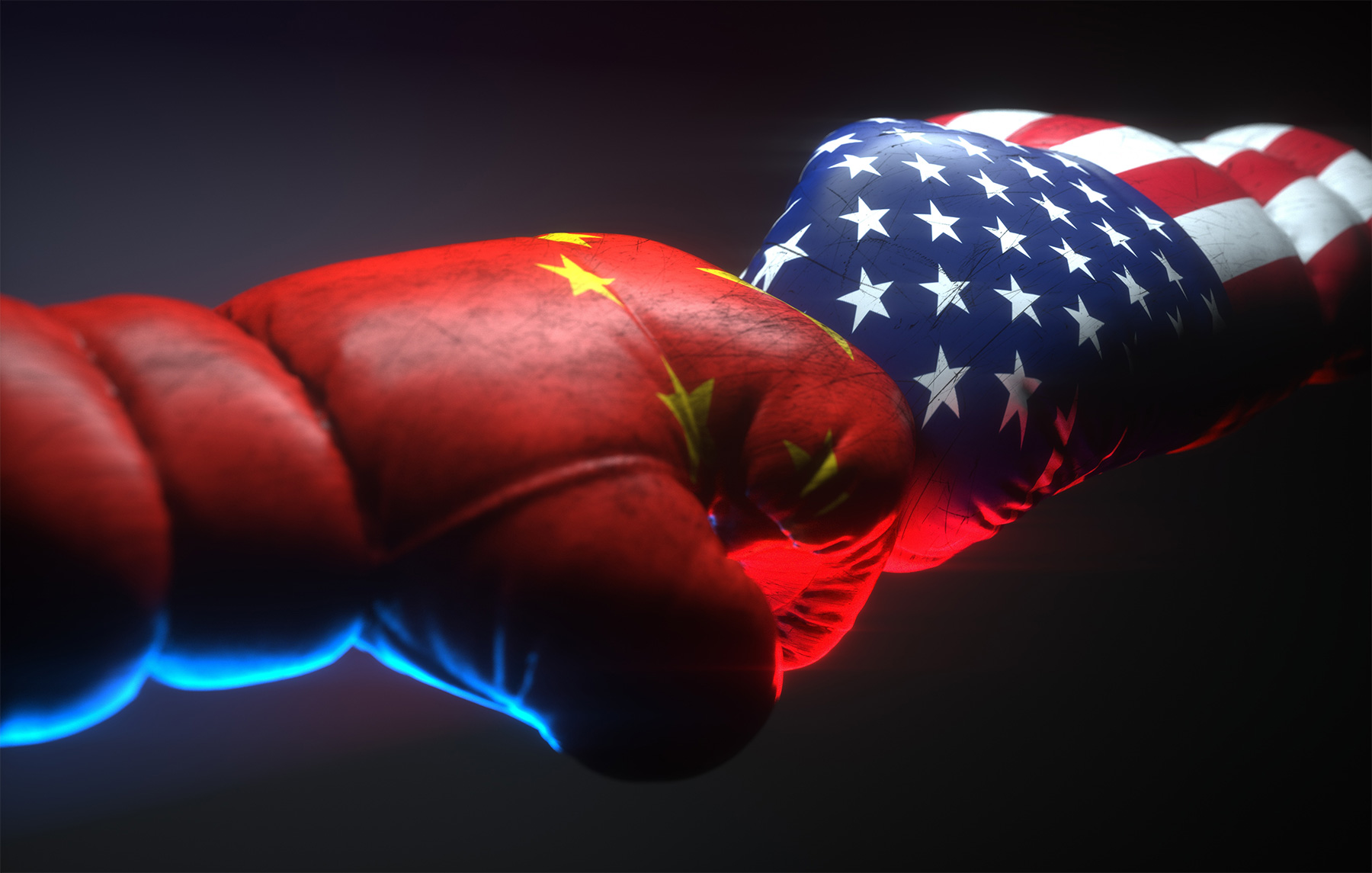The controversial “Thucydides trap” argument has sparked a heated debate since 2013, when President Xi Jinping of China told a cluster of western guests: “We must all work together to avoid Thucydides’ trap.” Later, this concept was elucidated by Professor Graham Allison in his articles, talks and famous book Destined for War: Can America and China Escape Thucydides’ Trap. So, what exactly is this Thucydides ’trap?
The phrase originates from the ancient Greek historian Thucydides who had observed that the Peloponnesian war (431BC-404BC) was caused by the growth of Athens, the rising power, and the corresponding fear of Sparta, the ruling power. Currently, this historical scenario is applied to discuss the relations between China, the emerging power, and the United States (US), the established power. The rise of China and the relative decline of the US allude that a gradual power imbalance may repeat history and lead to war. In fact, 12 of the 16 historical power shifts have resulted in catastrophe. More importantly, this narrative, to some extent, suggests the current dominant power is taking preemptive measures against the rising one. In reality, the US-initiated Sino-American trade war reflects this precautionary attitude.
The world may argue that although China has become more assertive than before, this war is the consequence of President Donald Trump’s radical foreign policy. Consequently, Trump started this war even though it may harm the Sino-American economic ties, leading to a negative economic impact on both sides. As a matter of fact, the Sinophobic turn in Washington is essentially a bipartisan consensus that realistically considers the economic facts thanks to strategic thinking. Based on the research of Alyssa Leng and Roland Rajah, the US had been at the helm of world trade until 2000, trading with over 80% of countries worldwide. However, in 2018, this number has plummeted to just 30%, as China has replaced the position of the US in 128 of 190 countries. Thus, “this bipartisan shift may have coincided with Trump’s arrival but the very fact that it is bipartisan demonstrates that it was not Trump who created it. Like a rooster at dawn, his crowing simply called forth the inevitably rising sun”. This situation raises the following questions: which side suffers the least? If the US achieves its goal of putting down China, who will win? According to Bruno Macaes, “in the end, the question of whether a new world order will be born, or the status quo preserved is less important than the question of whether the outcome will be determined peacefully or whether China and America are destined for war”.
In the anarchical international system, due to the fact there is no central authority to enforce laws, international actors, in the course of interactions, are always suspicious of each other’s real intentions. Indeed, human beings are distrustful and forgetful, repeating 12 identical mistakes throughout history. As the Western philosopher George Santayana said, “those who cannot remember the past are condemned to repeat it.” Similarly, the Chinese poet Du Mu wrote about how a destroyed dynasty vanished before it could reflect on its mistakes. Du details that the later generations of the dynasty felt the impact of this failure, yet did not learn from the past, continuing the cycle of collapse. While Graham Allison
believes that the US and China may be destined to a violent collision, his relevant Ted Talk leads one to believe that the last two power shifts of the world were peaceful. Between the US and Soviet Union power shift from the 1940s to the 1980s, and the UK, France and Germany power shift from the 1990s until now, demonstrated how we are able to break the cycle of destruction. Especially, the European power shift proved the importance of diplomatic leadership. Hopefully, as time progresses, mankind may learn to draw lessons from a series of historical tragedies. When the political leaders of the world face irreconcilable conflicts of interest, they will look into the dark and bottomless chasm in front of them and say, “that is indeed a very deep hole which we should not fall into.”
The controversial “Thucydides trap” argument has sparked a heated debate since 2013, when President Xi Jinping of China told a cluster of western guests: “We must all work together to avoid Thucydides’ trap.” Later, this concept was elucidated by Professor Graham Allison in his articles, talks and famous book Destined for War: Can America and China Escape Thucydides’ Trap. So, what exactly is this Thucydides ’trap?
The phrase originates from the ancient Greek historian Thucydides who had observed that the Peloponnesian war (431BC-404BC) was caused by the growth of Athens, the rising power, and the corresponding fear of Sparta, the ruling power. Currently, this historical scenario is applied to discuss the relations between China, the emerging power, and the United States (US), the established power. The rise of China and the relative decline of the US allude that a gradual power imbalance may repeat history and lead to war. In fact, 12 of the 16 historical power shifts have resulted in catastrophe. More importantly, this narrative, to some extent, suggests the current dominant power is taking preemptive measures against the rising one. In reality, the US-initiated Sino-American trade war reflects this precautionary attitude.
The world may argue that although China has become more assertive than before, this war is the consequence of President Donald Trump’s radical foreign policy. Consequently, Trump started this war even though it may harm the Sino-American economic ties, leading to a negative economic impact on both sides. As a matter of fact, the Sinophobic turn in Washington is essentially a bipartisan consensus that realistically considers the economic facts thanks to strategic thinking. Based on the research of Alyssa Leng and Roland Rajah, the US had been at the helm of world trade until 2000, trading with over 80% of countries worldwide. However, in 2018, this number has plummeted to just 30%, as China has replaced the position of the US in 128 of 190 countries. Thus, “this bipartisan shift may have coincided with Trump’s arrival but the very fact that it is bipartisan demonstrates that it was not Trump who created it. Like a rooster at dawn, his crowing simply called forth the inevitably rising sun”. This situation raises the following questions: which side suffers the least? If the US achieves its goal of putting down China, who will win? According to Bruno Macaes, “in the end, the question of whether a new world order will be born, or the status quo preserved is less important than the question of whether the outcome will be determined peacefully or whether China and America are destined for war”.
This does look like the inevitable Thucydides’ trap, but where is the solution? It is conceivable that the trade war is just a sign that might follow more fierce disputes militarily. As historical determinists, Professor Graham Allison and Professor Jonathan Holslag both believe that the strategic transformation of structural forces between China and the US are doomed to conflict that has already emerged and will transpire more dramatically, ineluctably reshaping the global geopolitical landscape. Currently, China is not strong enough to compete with the US in general and “the balance of power could continue to be in America’s favor for quite a long time into the future.” It is then justifiable for the US to want to suppress China’s growth right now. However, I argue that the reality is far more complex than the aforementioned circumstance and there indeed exists some way to avoid this “inevitable” trap.
First, diplomacy and leadership in the US and China play pivotal roles in avoiding this dilemma. Former Australian Prime Minister Kevin Rudd argues that political leaders and elites are not “simply some kind of puppet of anonymous structural forces”, but can change the historical tendency, to some extent. He proposes “constructive realism” as a solution by saying, “agency—what leaders decide, and those elites who advise them shape— actually determines the future course of history”. By suggesting that based on reality, the leaders of both sides should differentiate between the non-negotiable and negotiable national interests, thus managing the Sino-American strategic competition. In this context, the China-represented authoritarian capitalism versus the US-led liberal capitalism, is able to compete without one devastating the other and finally let the winner prevail.
Similarly, Chinese prominent scholar Jin Canrong suggests that when drawing on the wisdom of the Chinese and American leaders and diplomats, the two countries should neither have a “Hot War” nor a “Cold War”. The first may result in total planetary destruction with the example of the two World Wars during which great losses were suffered due to militaristic action worldwide. The later might bring about a deconstruction of the entire international trade system. Because of today’s economic globalization, a “Cold War” would devastate our internationally integrated economy, specifically, the existing Sino-American interdependent economic connections.
Nevertheless, Professor Jin proposes that the two sides should have a “Chess War”, as a metaphor of playing chess, which denotes that the two sides should be more transparent, reveal their strategic capabilities and intentions and reasonably bargain with each other. This is analogous to Rudd’s approach of distinguishing clearly between the non-negotiable and negotiable national interests of both parties. Furthermore, Jin argues that when China develops to a certain level, it will comprehensively compete with the US in all aspects. The US, as a commercial and pragmatism-centered empire, will compromise and accept China’s position, thus forming the global bi-core leadership and co-governing the world. He argues that the new global system is akin to the Concert of Europe/Age of Metternich, the balance of European powers between the Napoleonic War and World War One. The notion is to forgive France, the war initiator, and invite it to be part of European leadership, maintaining peace in Europe for a whole century.
The second plausible approach to this dilemma can be taken from the angle of a third party. Facing the increasingly Sino-American tension and the potential outbreak of a proxy war, Professor T. V. Paul advocates for "Soft Balancing", meaning small-scale countries relying on "international institutions, limited ententes" to unite and enhance their strength. Uniting smaller countries thwarts the threatening behavior of the rising or ruling powers through economic instruments or moral and legal condemnation, thereby avoiding the Thucydides' Trap. By comparison, the military capabilities or "Hard Balancing" of a country, remain important, but are clearly not as cost-effective as the institutionally driven “soft” method. Taking the ASEAN states’ soft balancing strategy toward China as an example, in addition to aligning with the American navy as hard balancing tactics, the ASEAN has involved diverse institutional engagements such as the ASEAN Regional Forum, the ASEAN Plus Three (China, Japan, and South Korea), the Chiang Mai Initiative and Regional Comprehensive Economic Partnership. These measures not only benefit the ASEAN countries from the economic rise of China, but simultaneously limit China’s territorial claim in the South China Sea by the united voice of ASEAN. To some extent, this strategy alleviates the Sino-American hostility and competition for leadership in this area, allowing the countries involved to have a fighting chance in the race for power.
To summarize, both approaches are aimed at constructing the scarce asset through frequent diplomatic communication: trust. In the anarchical international system, due to the fact there is no central authority to enforce laws, international actors, in the course of interactions, are always suspicious of each other’s real intentions. Indeed, human beings are distrustful and forgetful, repeating 12 identical mistakes throughout history. As the Western philosopher George Santayana said, “those who cannot remember the past are condemned to repeat it.” Similarly, the Chinese poet Du Mu wrote about how a destroyed dynasty vanished before it could reflect on its mistakes. Du details that the later generations of the dynasty felt the impact of this failure, yet did not learn from the past, continuing the cycle of collapse. While Graham Allison believes that the US and China may be destined to a violent collision, his relevant Ted Talk leads one to believe that the last two power shifts of the world were peaceful. Between the US and Soviet Union power shift from the 1940s to the 1980s, and the UK, France and Germany power shift from the 1990s until now, demonstrated how we are able to break the cycle of destruction. Especially, the European power shift proved the importance of diplomatic leadership. Hopefully, as time progresses, mankind may learn to draw lessons from a series of historical tragedies. When the political leaders of the world face irreconcilable conflicts of interest, they will look into the dark and bottomless chasm in front of them and say, “that is indeed a very deep hole which we should not fall into.”







